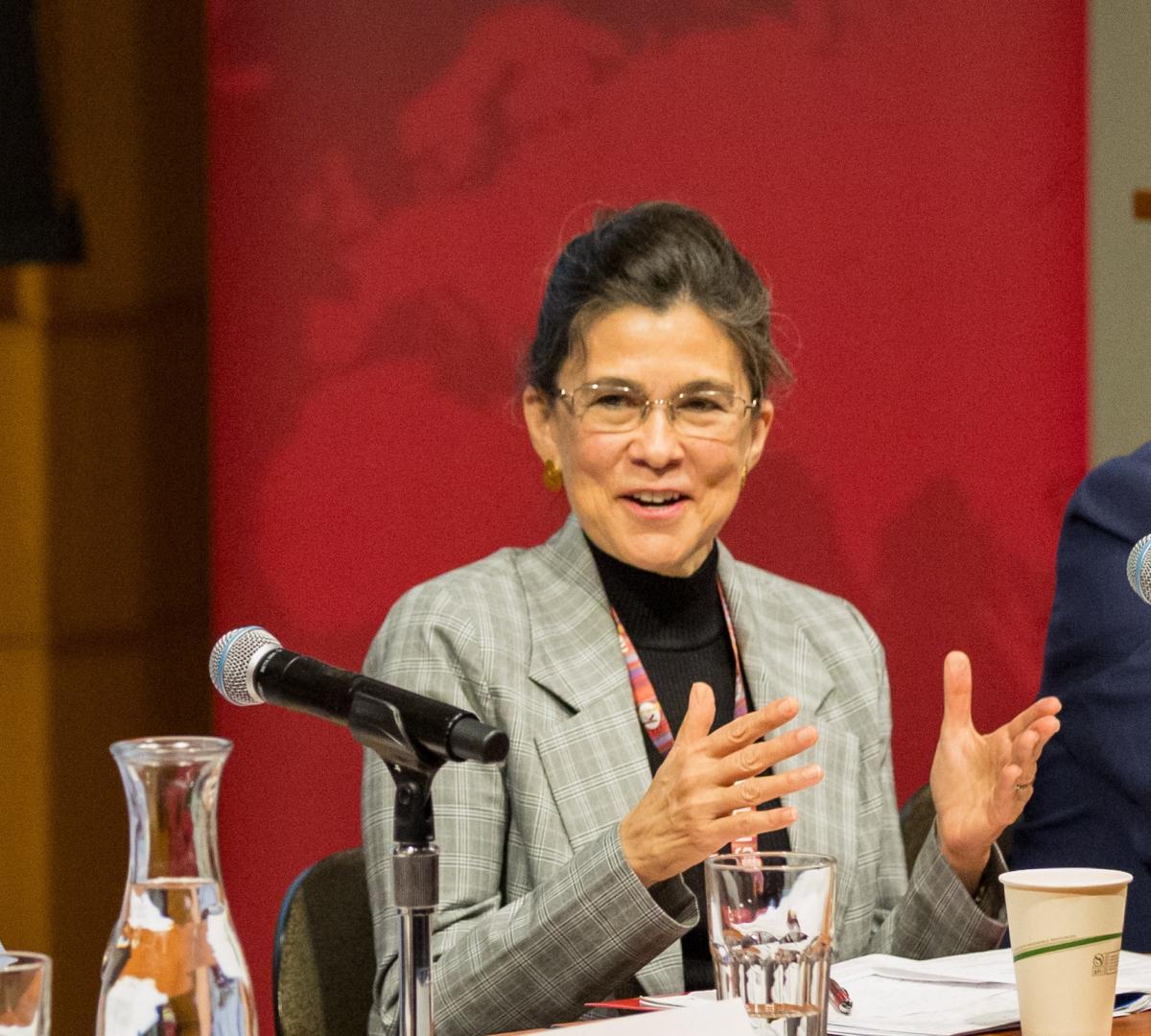 About the Episode:
About the Episode:
Show Notes:
Welcome to Global Stage, a podcast highlighting academic and policy-oriented international research on democracy and human development! Global Stage is brought to you by the Kellogg Institute for International Studies, part of the Keough School of Global Affairs at the University of Notre Dame. Your host today is Kellogg PhD Fellow Mayra Ortiz-Ocaña, a doctoral student in political science at the University of Notre Dame. Her guests are Wendy Hunter, professor of government at the University of Texas at Austin and a member of Kellogg's advisory board, and Benjamín García-Holgado, an assistant professor of political science at the University of Delaware and a former PhD fellow at the Kellogg Institute.
To begin, Wendy describes the current state of democracy in Latin America as mixed, with countries like Venezuela, Nicaragua, and Cuba firmly in the autocratic camp. She highlights Haiti as a collapsed state and raises concerns about El Salvador, where President Nayib Bukele has shifted the country toward a competitive authoritarian regime. However, she also identifies bright spots such as Brazil and Guatemala.
Wendy and Benjamín highlight the continued presence of elections as a core democratic practice, with a general consensus that elections are necessary to resolve political differences. Despite the challenges, there is still strong support for free and fair elections across most of the region, with the exceptions of Venezuela and Cuba. The military in countries like Mexico and Brazil has been drawn into various roles, from combating organized crime to engaging in public works. However, the professionalized militaries in the region are cautious about becoming too involved in politics, as they are aware of the risks of losing public support and being blamed for failures in non-military roles.
Wendy identifies the most significant threats to democracy in Latin America: corruption and public insecurity. These issues often precede the election of right-wing populists. In many cases, there is no clear division between the state and criminal organizations, as they are deeply interconnected. This situation complicates efforts to combat crime and corruption, as the boundaries between legitimate and illegitimate activities are often blurred. There is an evident need for improving bureaucratic structures in Latin America to create a more effective and ethical state apparatus. Deep structural inequality in the region contributes to many of the challenges facing these democracies, including crime and corruption.
Before wrapping up, Wendy and Benjamín discuss the impact of US intervention in Latin America and the need for transparency between the government and the people. The discussion concludes with a reflection on the importance of prioritizing democratic commitments over short-term political gains, emphasizing the need for political actors to think carefully about the long-term implications of their decisions on the health of democracy in their countries.
Links:
Learn more about Wendy Hunter and Benjamín Garcia Holgado
Learn more about the Kellogg Institution for International Studies.
Listen:
Listen below, ask your smart device to “play Global Stage Podcast,” or find us on:
Apple | Spotify | Stitcher | iHeartRadio | TuneIn | YouTube





